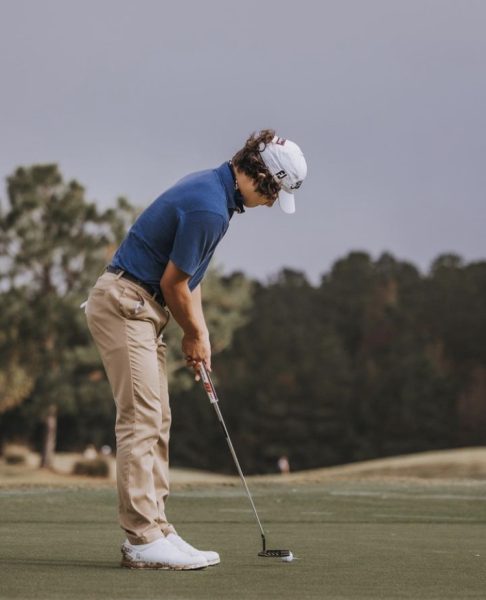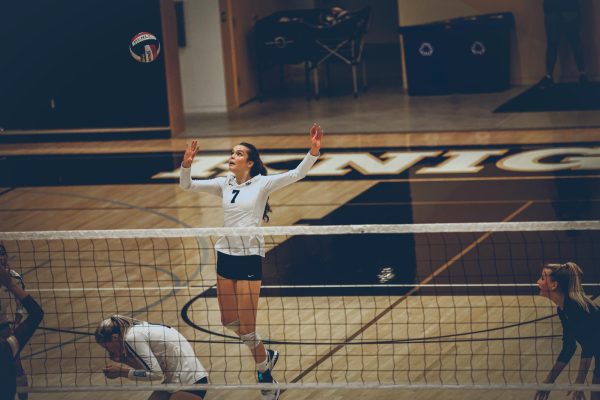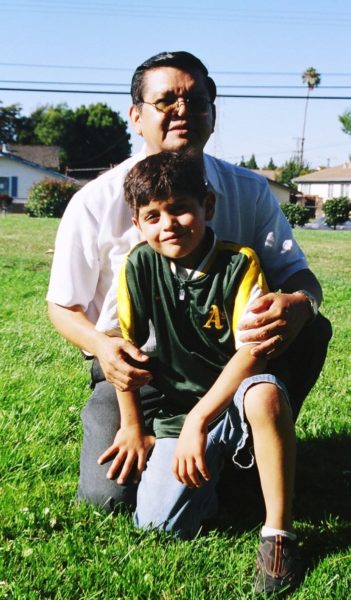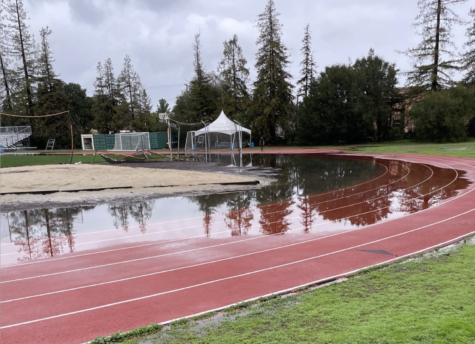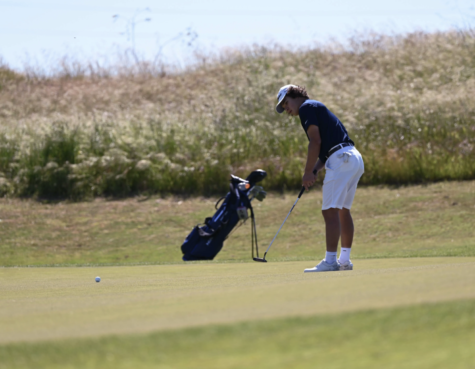Eating Disorders and the Menlo Community: Alex McCusker’s Journey with Anorexia
October 21, 2020
Note: This story is the third in a six-part package about eating disorders and the Menlo community. It also appeared in the October 2020 47.1 print edition of The Coat of Arms.
———
“I’ve always been very confident in my body [and] loved myself, but at the end of my freshman year, my mind started to think that I needed to lose weight and look a certain way,” senior Alexandra McCusker said. Her life changed considerably when she started to restrict her eating, eventually needing to be hospitalized and taken out of her sports. Though she felt scared and isolated during her battle with anorexia, she hopes to help other girls who are struggling with eating disorders by sharing her story.
Sports have always played a large role in McCusker’s life. She has been playing competitive lacrosse since fourth grade and said that she’s always been very athletic and has a competitive personality.
McCusker started restricting her eating during her freshman year. “I felt [that] if I lost weight, I would be fitter and faster,” she said. She had the idea that in order to be the fittest on the team, she needed to have abs and a thigh gap. “I wanted to be that perfect looking athlete.”
McCusker said that her condition significantly worsened during the summer after her freshman year. She described going away on a trip without her parents for a few weeks, which was when she was not eating sufficiently and was working out intensely. “That’s when my eating disorder really started to take over,” she said.
On her return, her mother and doctor realized that she was losing a lot of weight.
After an appointment with McCusker’s pediatrician where they weighed her, her mother told her to pack a hospital bag. They checked her into an Eating Disorder Comprehensive Care Clinic for anorexia. “I was really scared, and I didn’t really know what was happening. I [hadn’t] admitted that I had an eating disorder yet,” she said.
Though she thought she would only be there for one night, McCusker was in the comprehensive care clinic for two weeks. For the first few days, she was on bedrest and did not see any other patients there. She described those first days as brutal.
She was not allowed to shower. She was not allowed to go to the bathroom without a nurse in the room. At 5:30 a.m. they woke her up to get her blood drawn. On top of that, they would take her weight but would not let her see what it was. “As someone who had so much control over my weight and what I was eating, [it] was really scary for me to not see [my weight], especially because I knew I was in there with the goal of gaining weight,” she said.
In addition, she was being fed a lot, and she had no control over what she was eating. “It was really uncomfortable because I was eating a lot more food than I was used to. My stomach really, really hurt,” she said.
McCusker felt very isolated in the clinic and did not want to talk to the doctors or other patients though she ended up becoming friends with a few of the other girls. “I felt that no one got what I was going through. I was mad at my parents for making me get help because I wasn’t at [the] goal weight that I wanted. […] I didn’t think that I was anorexic,” she said.
After she was checked out of the care clinic, McCusker was not allowed to exercise. She had to eat three meals and three snacks a day, and her parents had to make and plate all of her food. She also started to isolate herself from her friends. “I think I was ashamed of [my eating disorder] because I had this idea in my head that anorexic girls had to look a certain way, [which meant having] no muscle on my legs so that I would have a thigh gap, [my] ribs showing and arms that I could fit my hand around. When you have anorexia, you always believe that there’s more to lose and [that] you aren’t skinny enough. I did not want people to know I was anorexic because I thought that I had to become even skinnier,” she said. She was not invested in her recovery. “In my mind [I was still thinking,] ‘I’m going to lose weight. I’m going to trick my parents and doctors so they think I’m fine, and then I’m going to go back to my old ways.’”
Though she said she was doing well for a few months after her program in the care clinic, McCusker said she started to go downhill again around December of her sophomore year, when she went on a trip to Africa with her family. Because she was unable to work out, she began to restrict her eating even more and was more underweight than ever before.
McCusker finally started to give in to recovery in February of her sophomore year when her parents threatened to send her away from home to another program, which would have caused her to stop attending school. “I was scared of that program. […] I also feared a lot of what my peers were going to think of me and what people were going to say if I was the girl who got sent away,” she said.
McCusker really started investing in her recovery in March of her sophomore year. “I was just feeling so isolated. I had shut out a lot of my friends and ruined a lot of my relationships with my family. I was not close with [my mom and dad]. I was really mean to my sister, and I totally isolated myself from my brother. I saw that my disease was ripping apart my family,” she said. She also wanted to go back to her sports. “I kept saying, ‘I just want to be normal again.’”
McCusker faced a difficult recovery during the summer leading up to her junior year. She was not allowed to be very active, had doctor’s appointments and therapy sessions, had to eat food that her parents prepared, had to eat a certain amount every day and didn’t see her friends very often. However, she recovered so much that she was able to run cross country in the fall. “I think cross country was a big part of my process because it [motivated] me to recover. I loved the happy feeling I got after [running] because most of my days were filled with sadness, fear and distress because of my eating disorder,” she said. “[I worked with my therapist, and] I started to see food not as something evil, but as something that gave me energy and helped me to be able to run faster and longer.”
McCusker has now been in recovery for about one year. “After going through what I have been through, I see that the skinniest on the team is not going to be the best on the team. You need your muscle. If you look at models versus athletes, athletes are very strong and have a lot of muscle, and models [do not],” she said. “I think that [female] athletes definitely have a mindset that they need to be healthy and fit, and that’s where a lot of eating disorders stem from.”
She also thinks that the process of recovering from her eating disorder has made her family stronger and closer. “It’s not an easy disease for families. [Sometimes] it breaks them apart. But, I’ve seen that it’s built up trust [in my family],” she said.
McCusker also said that some people glorify eating disorders. “We see celebrities posting edited photos of unrealistic bodies, and we think that to be like those celebrities, we have to be as slim as they are,” she said. “I also think that people glorify not eating; it has become a bragging right. I have heard people talking about what they eat in a day and usually when people, especially teenage girls, don’t eat a lot in a day, they tend to brag about it, saying things like ‘OMG I haven’t eaten all day,’ or ‘I only had lunch today.’ People say these things thinking it’s cool to not eat, but it’s not. It’s terrifying, isolating and utterly damaging to oneself. It’s really difficult. It’s not glorious.”




